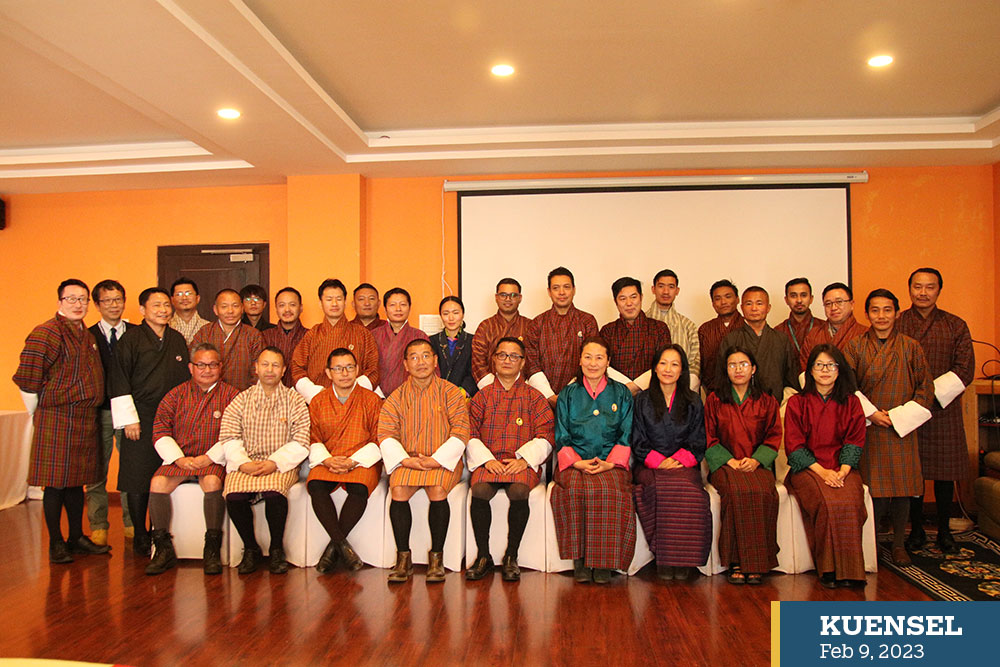Chhimi Dema
The country’s agriculture sector targets to achieve a Gross Domestic Product (GDP) growth rate of 7 to 8 percent annually from 2024, according to the draft Food and Nutrition Security Policy of Bhutan 2022.
The GDP growth rate of the sector including agriculture, livestock, and forestry was 2.05 percent in 2021 down from 4.57 percent in 2020.
According to a report from the Royal Monetary Authority, the sector contributed only one-fifth or 19.2 percent (Nu 36.04 billion) to the country’s GDP in 2021.
Ministry of Agriculture and Livestock’s chief of policy and planning division Karma Tshering said that the focus on growing high-value crops and commercial farming as mentioned in the policy would help to increase the GDP growth rate contribution to 7 to 8 percent.
He said, “It will be challenging but with good investment from the government the target is achievable.”
The draft policy targets transforming the sector from subsistence to commercial farming by leveraging technological advancement and research.
Karma Tshering said that the transformation targets improving the income of rural and farming communities.
The draft policy by 2034 aims to ensure all Bhutanese are food-secured, reduce the prevalence of malnutrition, and double the sector’s export value from the baseline of Nu 3.13 billion in 2021.
The policy identifies nine interventions to achieve the goals.
The interventions are disaster-resilient and climate-smart farming; sustainable development and productive use of agricultural land; agricultural research, innovation, and technology; and promoting organic farming.
It also includes developing and strengthening agricultural value-chain infrastructures and marketing logistics; enhancing availability and consumption of safe, healthy, and nutritious food and practices; gender and social inclusion for food security; and adaptive and sustainable use of agrobiodiversity.
Through the policy, the ministry would support farmers through a cost-sharing mechanism or apply tax incentives to grow priority crops and encourage commercial farming, according to Karma Tshering.
He added that the ministry is also promoting farmers to grow crops depending on the region and instituting a protected farming system.
This is expected to bring crop diversity and ensure the market for agricultural produce.
Each policy intervention has identified a relevant stakeholder for its implementation.
Karma Tshering said that a major component of the policy emphasises monitoring and evaluation to put accountability on the relevant agencies.
He said the policy looks at creating an enabling environment for the private sector and cooperatives and encouraging foreign direct investment for the export of high-value crops.
The national consultation on the draft policy was held yesterday with officials from the ministry, UN offices, financial institutions, the private sector, and civil society organisations.
During the consultation, the participants suggested including components of preserving the traditional farming practices, enhancing rural development, and specifying roles of private, civil society organisations and cooperatives, among others.
The draft policy will be shared with relevant stakeholders for comments and suggestions before it is submitted to the Cabinet for approval.
The first Food and Nutrition Security Policy was drafted in 2014.


